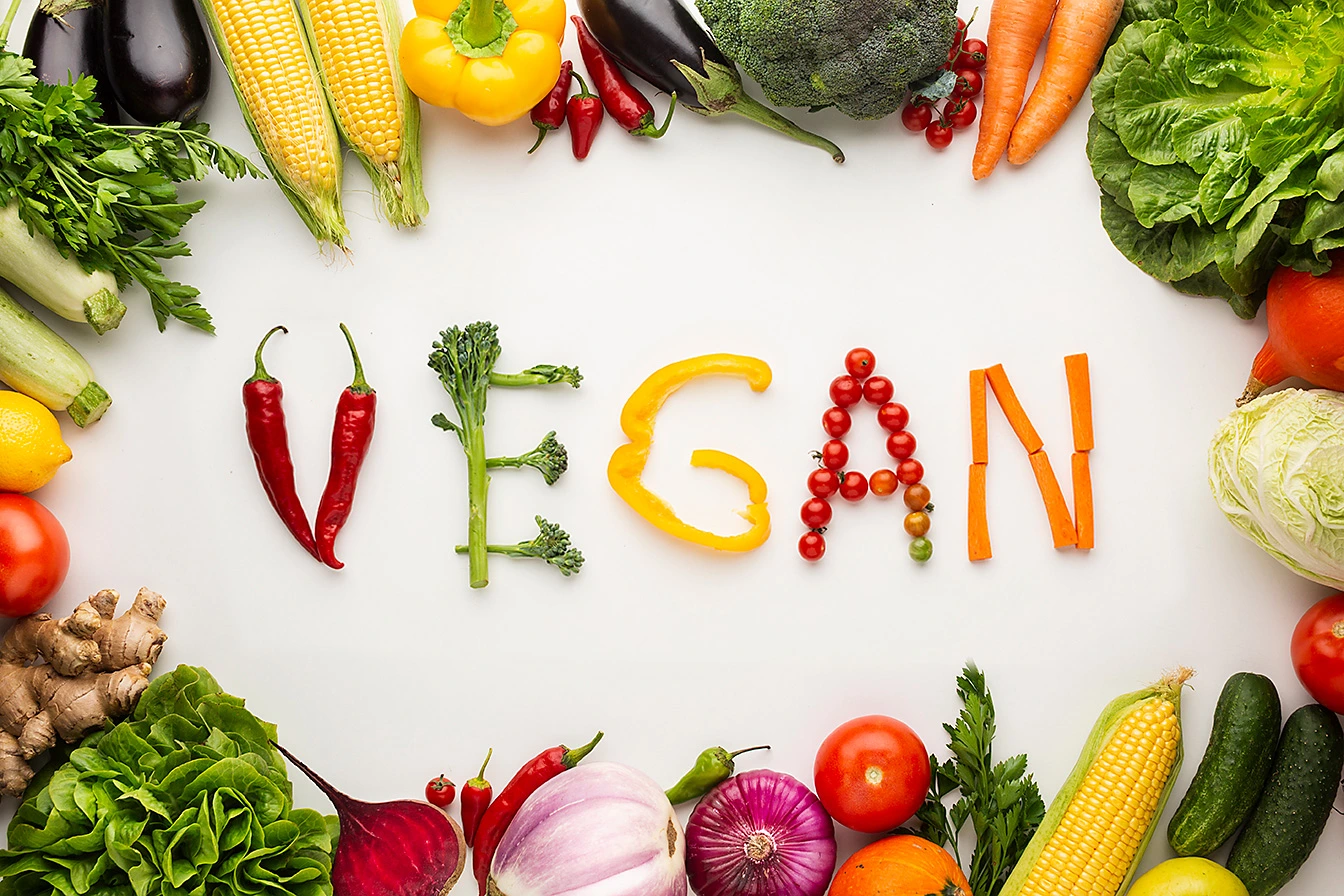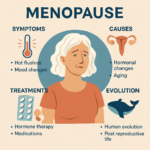
Welcome to a fascinating journey into the world of veganism! Far more than just a diet, veganism is a lifestyle choice embraced by millions around the globe, driven by a diverse set of motivations ranging from ethical considerations to health benefits and environmental concerns. In this blog post, we’ll peel back the layers of this increasingly popular movement, uncovering some truly interesting and perhaps surprising facts. Whether you’re a curious omnivore, a seasoned plant-based pro, or just looking to learn something new, prepare to have your understanding of veganism expanded and challenged. Let’s dive in!
Veganism, as a distinct movement, was formally established in 1944 when a faction of vegetarians, desiring a more stringent adherence to animal-free living, separated from the Leicester Vegetarian Society to form their own organization, which they named the Vegan Society. This foundational event marked the beginning of a codified approach to a lifestyle that extends beyond mere dietary choices.
The term “vegan” itself was ingeniously coined by taking the first three and last two letters of the word “vegetarian,” a linguistic construction that symbolically represented the beginning and end of the vegetarian spectrum, thereby signifying a complete departure from all animal products. This clever portmanteau has since become a globally recognized designation for this particular lifestyle.
Beyond the exclusion of meat, a vegan diet comprehensively eliminates all animal-derived foods, including dairy products such as milk, cheese, and yogurt, as well as eggs, honey, and any other ingredients that originate from animals, thus requiring meticulous attention to food labels and ingredients lists.
The appeal of veganism has attracted numerous high-profile individuals, with a list of famous adherents including Benedict Cumberbatch, Zac Efron, Beyoncé, Bill Clinton, Natalie Portman, Madonna, James Cameron, Joaquin Phoenix, and Michelle Pfeiffer, whose public embrace of the lifestyle has contributed to its increased visibility and discussion.
Veganism is not solely a dietary regimen but encompasses an entire lifestyle philosophy, extending to the rejection of all products derived from animals, including clothing made of leather, wool, or silk, and other commodities like cosmetics tested on animals or personal care items containing animal by-products.
Adopting a vegan diet may offer significant health advantages, potentially contributing to a reduced risk of chronic ailments such as heart disease, Alzheimer’s disease, various forms of cancer, and type 2 diabetes, suggesting its role as a preventative measure for certain health conditions.
For some individuals, the choice to embrace a vegan diet is motivated by the desire to achieve weight loss, leveraging the often lower calorie and fat content of plant-based foods, though success in this regard depends heavily on the specific food choices made within the vegan framework.
The diverse landscape of veganism includes various approaches, such as dietary vegans who focus solely on food, whole-food vegans who prioritize unprocessed plant-based foods, raw-food vegans who consume only uncooked plant items, and even “junk-food vegans” who rely on processed vegan alternatives, illustrating the wide spectrum of dietary practices within the vegan community.
The primary motivations behind individuals choosing a vegan lifestyle are multifaceted, often stemming from a deep commitment to animal rights and welfare, a desire to mitigate the environmental impact of animal agriculture, or the pursuit of the documented positive health effects associated with a plant-based diet.
A tragic case in 2004 brought significant public scrutiny to the practice of raising children on a vegan diet when the parents of a six-week-old infant were convicted of felony murder for failing to provide adequate nourishment, leading to the child’s death; this incident, with the parents’ claim of adhering to a vegan diet, ignited widespread debate and objection to imposing strict veganism on children without expert nutritional guidance.
While many prominent vegans attribute weight loss to their dietary choices, it is important to note that a vegan diet does not inherently guarantee weight loss, as some individuals may experience weight gain; the actual outcome is largely determined by the specific foods chosen to replace animal products, with processed vegan alternatives potentially contributing to increased caloric intake.
The original architects of the vegan movement, the Vegan Society, precisely defined veganism as a pursuit to abolish “the use of animals by man for food, commodities, work, hunting, vivisection, and by all other uses involving exploitation of animal life by man,” a comprehensive mission statement that outlines their overarching ethical framework.
Vegans meticulously avoid a surprising array of foods that often contain hidden animal products, including honey, marshmallows, certain breakfast cereals, many types of gummy candies, some chewing gum, and even specific varieties of beer and wine that use animal-derived fining agents, necessitating careful label reading.
To compensate for the absence of meat in their diets, vegans incorporate a variety of plant-based protein sources, such as tofu, beans, lentils, wheat gluten (seitan), nuts, and seeds, ensuring adequate nutritional intake and culinary versatility.
“Climate veganism” represents a specialized approach to the vegan lifestyle that explicitly emphasizes the profound negative impact of animal agriculture on global climate change, advocating for plant-based diets as a critical strategy in mitigating environmental degradation.
Due to the extensive list of prohibited foods and the potential for nutritional gaps if not carefully planned, veganism is often characterized as an “extreme diet,” highlighting the significant dietary restrictions and the need for informed food choices to avoid deficiencies.
A potential danger associated with some vegan diets stems from the reliance on large quantities of processed foods, which individuals may consume to compensate for the elimination of animal products, potentially leading to an intake of unhealthy additives, sugars, and fats.
Vegans may face an elevated risk of depression, as their diet can be deficient in certain food sources rich in omega fatty acids, crucial nutrients often found in fatty fish and eggs, which play a vital role in brain health and mood regulation.
While a vegan diet shows promise in preventing certain chronic diseases, the long-term health effects of such a restrictive eating pattern are still undergoing extensive research, and further studies are needed to definitively ascertain its enduring benefits and potential drawbacks.
Iron deficiency, which can lead to anemia, is a potential consequence of a vegan diet due to the absence of red meat, a primary source of easily absorbed heme iron, requiring vegans to consciously seek out non-heme iron sources and consider vitamin C for enhanced absorption.
Parents choosing to raise children on a vegan diet must exercise extreme caution and seek professional nutritional guidance, as the omission of several essential nutrients during crucial developmental stages can lead to irreversible health problems in growing children.
A segment of vegans extends their ethical considerations to their companion animals, opting to feed their pets a vegan diet, viewing the provision of animal products to other animals as hypocritical; however, most mainstream vegan organizations express reservations about this practice, acknowledging that many animal species have specific nutritional requirements best met by animal-derived ingredients.
The perception of “self-righteousness” promoted by some early vegans has historically contributed to the unpopularity of the movement, creating an off-putting image for individuals considering the lifestyle.
A 2007 study investigating public perception of veganism in published articles revealed a significantly skewed distribution of sentiment, with only 5.5% of articles presenting a positive view, 20.2% remaining neutral, and a substantial 74.3% expressing negative opinions on the diet, indicating a prevalent critical public discourse at the time.
Frequently Asked Questions (FAQs) about Veganism
1. What exactly is veganism? How is it different from vegetarianism?
Veganism is a lifestyle that seeks to exclude all forms of animal exploitation and cruelty, whether for food, clothing, or any other purpose. This means that in addition to abstaining from meat (including poultry and fish), vegans also do not consume dairy products (milk, cheese, yogurt), eggs, honey, or any other ingredients derived from animals (like gelatin or some food colorings). The philosophy extends beyond diet to encompass avoiding animal-derived materials like leather, wool, silk, and down, and products tested on animals. Vegetarianism, on the other hand, is primarily a dietary choice that excludes meat, but often includes dairy products, eggs, and sometimes honey. The key distinction lies in veganism’s broader ethical stance against all animal exploitation.
2. Where do vegans get their protein? Is it difficult to get enough?
This is perhaps the most common question posed to vegans, and the answer is that vegans can easily obtain sufficient protein from a wide variety of plant-based sources. Protein is found in nearly all whole plant foods. Excellent sources include legumes (beans, lentils, chickpeas), tofu, tempeh, seitan (wheat gluten), nuts, seeds (chia, flax, hemp), quinoa, and even many vegetables like broccoli and spinach. While some plant proteins might not be “complete” in the same way animal proteins are (meaning they don’t contain all nine essential amino acids in optimal ratios), consuming a variety of plant-based foods throughout the day ensures that all necessary amino acids are acquired. The human body effectively combines amino acids from different plant sources.
3. Is a vegan diet healthy? Are there any nutrient deficiencies I should be concerned about?
A well-planned vegan diet can be incredibly healthy and is associated with a reduced risk of various chronic diseases, including heart disease, type 2 diabetes, certain cancers, and obesity. However, like any diet, it requires thoughtful planning to ensure all nutritional needs are met. Certain nutrients require particular attention for vegans:
- Vitamin B12: This vitamin is crucial for nerve function and red blood cell formation and is primarily found in animal products. Vegans must supplement with B12 or consistently consume B12-fortified foods (like some plant milks, cereals, and nutritional yeast).
- Iron: While many plant foods contain iron (non-heme iron), its absorption is less efficient than heme iron from animal sources. Vegans should focus on iron-rich plant foods (lentils, spinach, tofu, fortified cereals) and pair them with vitamin C sources to enhance absorption.
- Calcium: Though dairy is a common source, calcium is abundant in fortified plant milks and yogurts, leafy green vegetables (kale, collard greens), calcium-set tofu, sesame seeds, and fortified orange juice.
- Omega-3 Fatty Acids: While plant sources like flaxseeds, chia seeds, and walnuts contain ALA (alpha-linolenic acid), conversion to EPA and DHA (the forms found in fatty fish) can be inefficient. Vegans may consider an algae-based omega-3 supplement.
- Vitamin D: Like non-vegans, vegans might need to supplement with Vitamin D, especially in regions with limited sun exposure. Fortified foods and sun exposure are also important.
- Zinc: Found in legumes, nuts, seeds, and whole grains. Soaking and sprouting can improve zinc absorption from these sources.
With proper planning, which often includes fortified foods and targeted supplements, a vegan diet can be nutritionally adequate for all life stages, including pregnancy, lactation, and childhood.
4. Is veganism expensive?
Not necessarily. While specialty vegan products like mock meats and dairy-free cheeses can sometimes be pricier, the staple foods of a vegan diet – beans, lentils, rice, pasta, fruits, vegetables, and whole grains – are often more affordable than meat and dairy products. By focusing on whole, unprocessed plant foods and cooking at home, veganism can be a very budget-friendly way to eat. In fact, many people find their grocery bills decrease after going vegan.
5. Do plants feel pain?
No, plants do not feel pain in the way animals do. Pain is a complex neurological experience that requires a central nervous system and a brain, which plants lack. While plants do respond to stimuli and stress, and can communicate through chemical signals, these are not indicative of conscious suffering. Furthermore, even if plants could somehow experience something akin to pain, animal agriculture is incredibly inefficient, requiring vast quantities of crops to feed livestock. Therefore, a vegan diet generally results in the consumption of fewer plants overall compared to a meat-inclusive diet.
6. Why do people choose to go vegan?
People adopt veganism for a variety of compelling reasons, often combining several motivations:
- Ethical / Animal Rights: A primary driver for many is the desire to reduce animal suffering and exploitation. Vegans believe that animals are sentient beings deserving of respect and do not wish to contribute to industries that cause them harm.
- Environmental Concerns: Animal agriculture is a significant contributor to greenhouse gas emissions, deforestation, water pollution, and biodiversity loss. Choosing a vegan diet dramatically reduces an individual’s carbon footprint and environmental impact.
- Health Benefits: As mentioned, a well-planned vegan diet can offer numerous health advantages, including a reduced risk of chronic diseases. Many individuals report increased energy, improved digestion, and better overall well-being.
- Weight Management: For some, veganism is adopted as a strategy for weight loss, as plant-based diets tend to be lower in saturated fat and cholesterol and higher in fiber.
- Social and Personal Values: A growing awareness of the interconnectedness of food systems, ethics, and environmental justice also plays a role for many.
7. Is it difficult to transition to a vegan diet? How can I start?
Transitioning to a vegan diet can be as easy or as challenging as you make it. Some people go “cold turkey,” while others prefer a gradual approach. Here are some tips for starting:
- Go Gradual: Begin by incorporating more plant-based meals into your week, like “Meatless Mondays.” Gradually phase out animal products, perhaps starting with red meat, then poultry, fish, dairy, and finally eggs and honey.
- Experiment with Alternatives: The market for vegan alternatives (plant milks, cheeses, meat substitutes) has exploded. Try different brands and types to find what you enjoy.
- Focus on Whole Foods: Build your meals around staples like beans, lentils, grains, fruits, vegetables, nuts, and seeds. These are naturally vegan, nutritious, and often affordable.
- Learn New Recipes: Explore vegan cookbooks, blogs, and online communities for inspiration. You’ll discover a vast and delicious world of plant-based cuisine.
- Educate Yourself: Learn about vegan nutrition to ensure you’re getting all essential nutrients. Consider consulting a registered dietitian experienced in plant-based diets, especially if you have specific health concerns.
- Find Your “Why”: Remind yourself of your reasons for going vegan (ethics, health, environment) to stay motivated through any challenges.
- Be Patient with Yourself: It’s a learning curve. Don’t be discouraged by occasional slip-ups or finding hidden animal ingredients. Every plant-based meal makes a difference.
8. Can children be raised on a vegan diet?
Yes, well-planned vegan diets can be suitable for children at all stages of development, from infancy through adolescence. Major health organizations, such as the Academy of Nutrition and Dietetics, endorse well-planned vegan diets as healthy and nutritionally adequate for all life stages. However, it is crucially important for parents to ensure that children on a vegan diet receive adequate calories and all necessary nutrients, including protein, iron, calcium, vitamin B12, vitamin D, and essential fatty acids. This often requires careful meal planning, the use of fortified foods, and appropriate supplementation (especially for B12). Consulting with a pediatrician or registered dietitian specializing in plant-based pediatric nutrition is highly recommended to prevent nutrient deficiencies that could lead to irreversible health problems.
9. Are all alcoholic beverages vegan?
No, not all alcoholic beverages are vegan. While the core ingredients of many beers, wines, and spirits are plant-based, animal products are often used in the fining process (to clarify and filter the drinks, removing cloudiness and sediment). Common animal-derived fining agents include:
- Isinglass: Derived from fish bladders.
- Gelatin: From animal bones and connective tissues.
- Casein: A milk protein.
- Egg Albumen: From egg whites. Unfortunately, these ingredients are typically not listed on the label as they are considered processing aids, not ingredients. Websites and apps like Barnivore.com are excellent resources for checking whether specific brands of beer, wine, or liquor are vegan.
10. Do vegans give their pets a vegan diet? Is it safe?
Some vegans do choose to feed their companion animals a vegan diet, often out of the same ethical considerations that lead them to veganism themselves, feeling it is hypocritical to provide animal products for other animals while avoiding them for personal consumption. However, whether a vegan diet is safe and appropriate for pets is a complex and often debated topic.
- Dogs: Dogs are omnivores and can, with very careful formulation and often with veterinary guidance and commercially prepared vegan dog foods, thrive on a vegan diet. Their digestive systems are more adaptable to plant-based foods than cats.
- Cats: Cats are obligate carnivores, meaning they require certain nutrients found only or predominantly in animal tissues, such as taurine, arachidonic acid, and preformed vitamin A. It is significantly more challenging and risky to formulate a nutritionally complete and balanced vegan diet for a cat. Most veterinary and animal welfare organizations advise against feeding cats a vegan diet due to the high risk of severe nutritional deficiencies and related health problems. If considering a vegan diet for a pet, it is absolutely essential to consult with a veterinarian experienced in pet nutrition to ensure the diet is complete and balanced for the specific animal’s needs. Commercially prepared vegan pet foods are generally safer than homemade ones, as they are formulated to meet nutritional standards.









